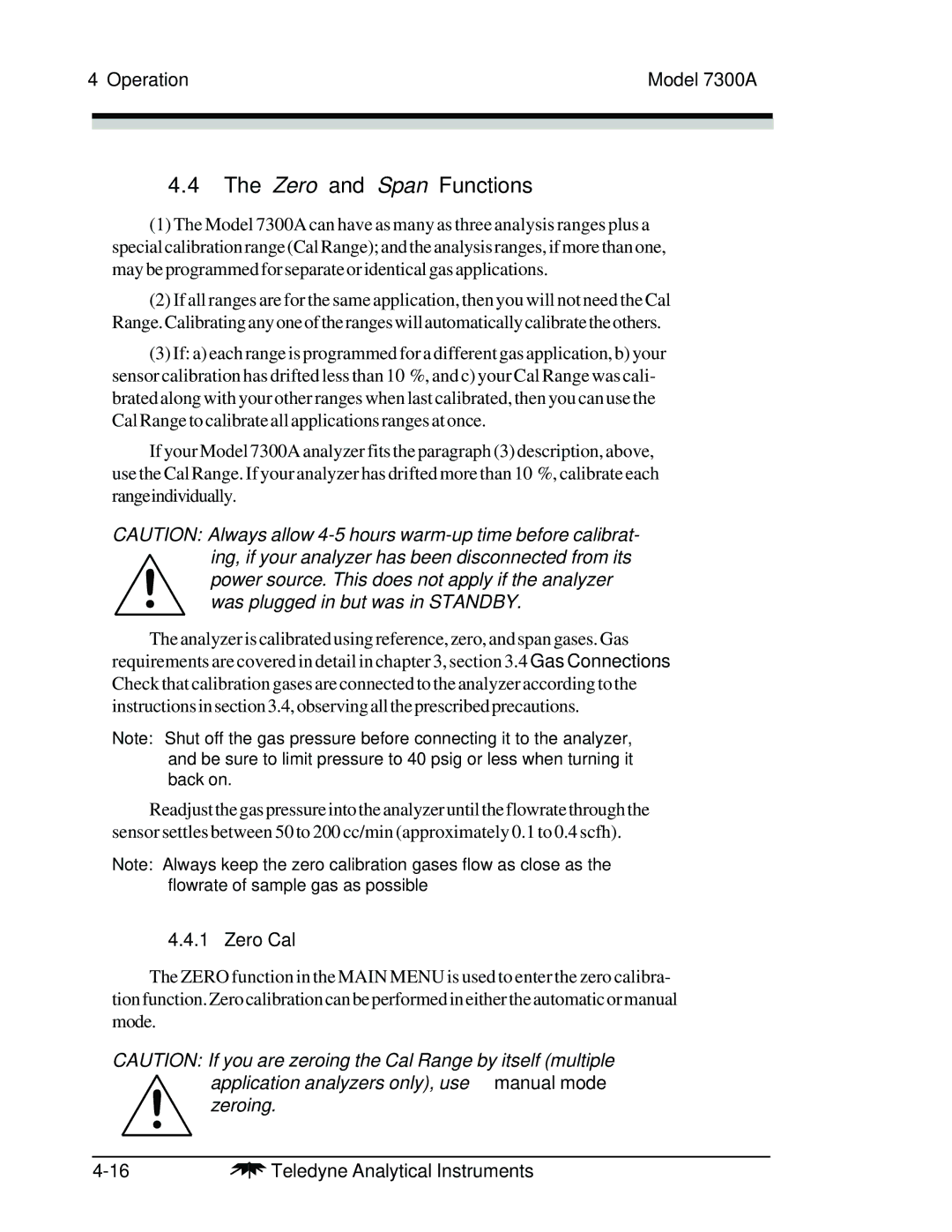
4 Operation | Model 7300A | |
|
|
|
|
|
|
|
|
|
4.4The Zero and Span Functions
(1)The Model 7300A can have as many as three analysis ranges plus a special calibration range (Cal Range); and the analysis ranges, if more than one, may be programmed for separate or identical gas applications.
(2)If all ranges are for the same application, then you will not need the Cal Range. Calibrating any one of the ranges will automatically calibrate the others.
(3)If: a) each range is programmed for a different gas application, b) your sensor calibration has drifted less than 10 %, and c) your Cal Range was cali- brated along with your other ranges when last calibrated, then you can use the Cal Range to calibrate all applications ranges at once.
If your Model 7300A analyzer fits the paragraph (3) description, above, use the Cal Range. If your analyzer has drifted more than 10 %, calibrate each rangeindividually.
CAUTION: Always allow
The analyzer is calibrated using reference, zero, and span gases. Gas requirements are covered in detail in chapter 3, section 3.4 Gas Connections. Check that calibration gases are connected to the analyzer according to the instructions in section 3.4, observing all the prescribed precautions.
Note: Shut off the gas pressure before connecting it to the analyzer, and be sure to limit pressure to 40 psig or less when turning it back on.
Readjust the gas pressure into the analyzer until the flowrate through the sensor settles between 50 to 200 cc/min (approximately 0.1 to 0.4 scfh).
Note: Always keep the zero calibration gases flow as close as the flowrate of sample gas as possible
4.4.1 Zero Cal
The ZERO function in the MAIN MENU is used to enter the zero calibra- tion function. Zero calibration can be performed in either the automatic or manual mode.
CAUTION: If you are zeroing the Cal Range by itself (multiple application analyzers only), use manual mode zeroing.
Teledyne Analytical Instruments |
